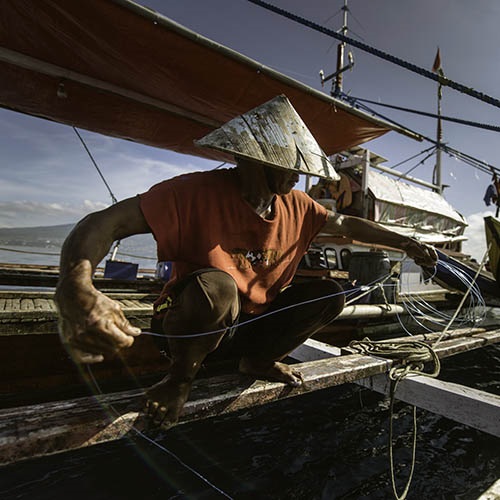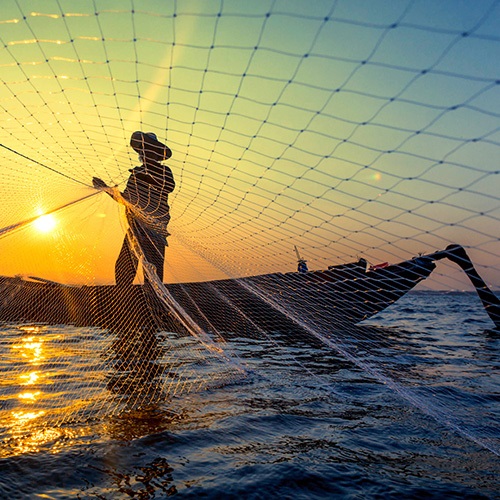Aubrey Mathews, University of Exeter and the Wash Brown Shrimp Fishery
Amount awarded: £4,475
This project aims to use GIS (Geographical Information Systems) technology mapping to understand any potential impact to endangered, threatened and protected (ETP) species that the MSC certified Wash Brown Shrimp Fishery encounters in the North Sea.
The fishery, which targets the common shrimp (Crangon crangon) using a beam trawl, operates within the Wash and Norfolk Coast Special Area of Conservation (SAC) and the Humber Estuary SAC off the east Coast of England. The marine protected area already includes 36 spatial closures to bottom trawling, helping the fishery to avoid areas that contain sensitive habitats or species.
The fishery was first certified as sustainable in 2020 and has several conditions of certification – timebound improvements the fishery must make – to retain its certificate. These include gathering better data on the types of species the fishery encounters as well as identifying issues and mitigation measures to ensure the fishery is not hindering the recovery of any ETP species.
What the project will do
This project will include a scientific literature review to understand which ETP species might overlap with the fishery grounds and how likely they are to interact with the fishery. A breakdown of how the fishery’s operations could impact these species will be displayed in a risk map, so that the fishery can implement measures to avoid interactions.
The project will be led by Master’s student Aubrey Mathews at the University of Exeter, supported through an MSC Student Research Grant. The researcher will work directly with the fishers to understand current ETP interactions to help meet the conditions of certification that were advised by the independent assessors. The project will also benefit from supervision from MSC’s Chief Science & Standards Officer, Dr Rohan Currey.
This project will include a risk assessment to determine the vulnerability of relevant species. The literature review will include compiling IUCN category information and stock status, biology and life-history of the species, capture methods, management, gear risks, and certification requirements.
The project will help the fishery implement best practice ETP species management measures. The findings may also be relevant to other fisheries, using similar gear methods or in a similar region. The outcomes of this research will be publicly available to fishers globally and help the Wash brown shrimp fishery meet global best practice standards for environmental sustainability.
“I am excited to receive this funding because it will give me the ability to experience the fishery in person. Working with the fishery to achieve its sustainability goals is something that brings me joy, and being able to shake the fisherman’s hands, be on their boat, see their process and experience the sea the way they do, is vital to ensure my project is successful.”
The University of Exeter
Find out more

Our impact projects
Discover projects supported through the Ocean Stewardship Fund that are helping to grow sustainable fishing worldwide.

The Ocean Stewardship Fund
The Ocean Stewardship Fund offers grants to both MSC certified sustainable fisheries and improving fisheries.
